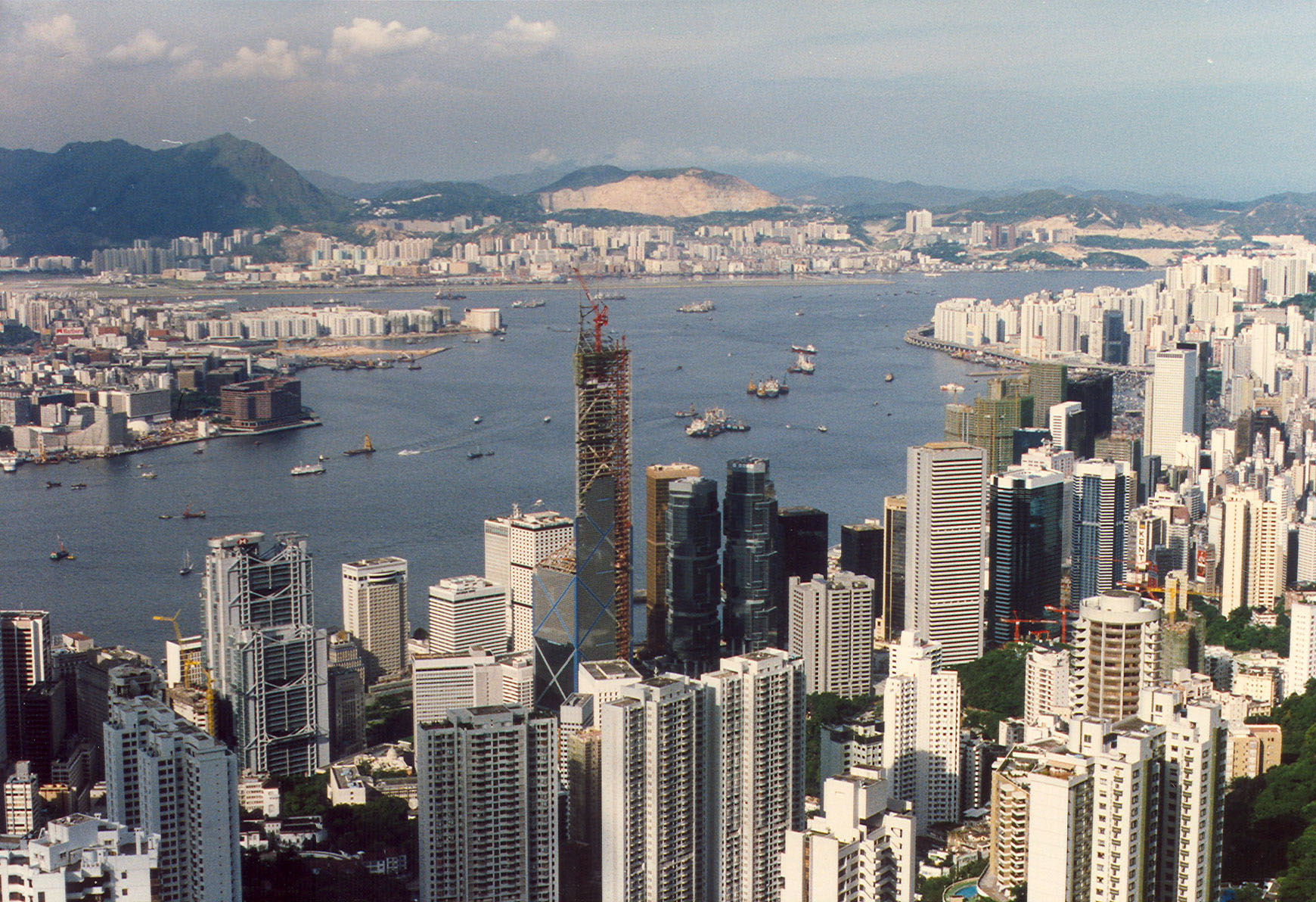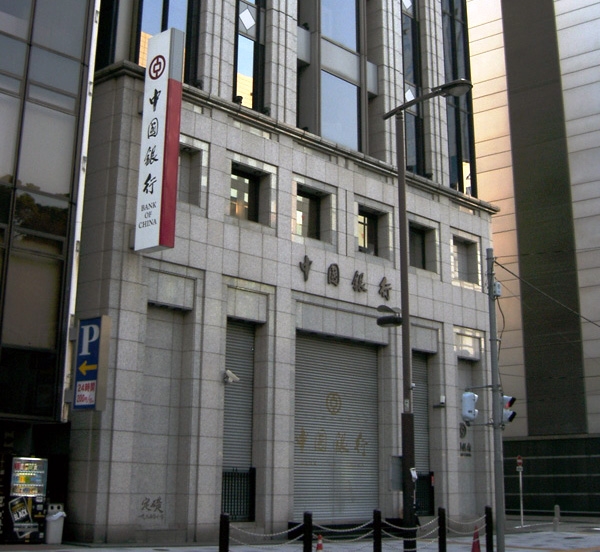|
Hua Chiao Commercial Bank
Hua Chiao Commercial Bank () was a bank in Hong Kong. It was established in Hong Kong in 1962 by several Indonesian Chinese. After 1965, it became a member of Bank of China Group. It was involved in remittance and deposit account businesses, but it switched to export and import trading loan, international settlement after the 1970s. In 2001, it was merged to form Bank of China (Hong Kong) Bank of China (Hong Kong) Limited () also known as its short name Bank of China (Hong Kong) or BOCHK (), is a subsidiary of the Bank of China (via a Hong Kong-listed intermediate holding company BOC Hong Kong (Holdings)). Bank of China (Hong K .... References {{Bank of China Banks established in 1962 Banks disestablished in 2001 Defunct banks of Hong Kong Bank of China 1962 establishments in Hong Kong 2001 disestablishments in Hong Kong ... [...More Info...] [...Related Items...] OR: [Wikipedia] [Google] [Baidu] |
Bank Of China (Hong Kong)
Bank of China (Hong Kong) Limited () also known as its short name Bank of China (Hong Kong) or BOCHK (), is a subsidiary of the Bank of China (via a Hong Kong-listed intermediate holding company BOC Hong Kong (Holdings)). Bank of China (Hong Kong) is the second-largest commercial banking group in Hong Kong in terms of assets and customer deposits (2008 data), with more than 190 branches across Hong Kong as of the end of 2019. It is also one of the three commercial banks licensed by the Hong Kong Monetary Authority to issue banknotes for the Hong Kong dollar. BOCHK is legally separated from its parent, Bank of China (BOC), although they maintain close relations in management and administration and co-operate in several areas including reselling BOC's insurance and securities services. BOCHK is also the biggest member and a founder of the JETCO ATM and payment system, and the designated clearing bank in Hong Kong for transactions involving the Renminbi (RMB / CNH). BOCHK was ... [...More Info...] [...Related Items...] OR: [Wikipedia] [Google] [Baidu] |
British Hong Kong
Hong Kong was a colony and later a dependent territory of the British Empire from 1841 to 1997, apart from a period of occupation under the Japanese Empire from 1941 to 1945 during the Pacific War. The colonial period began with the British occupation of Hong Kong Island in 1841, during the First Opium War between the British and the Qing dynasty. The Qing had wanted to enforce its prohibition of opium importation within the dynasty that was being exported mostly from British India, as it was causing widespread addiction among its populace. The island was ceded to Britain by the Treaty of Nanking, ratified by the Daoguang Emperor in the aftermath of the war of 1842. It was established as a crown colony in 1843. In 1860, the British took the opportunity to expand the colony with the addition of the Kowloon Peninsula after the Second Opium War, while the Qing was embroiled in handling the Taiping Rebellion. With the Qing further weakened after the First Sino-Japanese Wa ... [...More Info...] [...Related Items...] OR: [Wikipedia] [Google] [Baidu] |
Bank Of China Group
Bank of China Group (中銀集團;BOCG) was the brand used to denote 13 banks that were almost entirely owned by the Chinese government that operated in Hong Kong, until their merger in 2001 to form Bank of China (Hong Kong). The exception was the Hong Kong branch of the Bank of Communications, which left BOCG in 1998. The BOCG brand is still retained by the life insurance and casualty insurance operations of the Bank of China, in both Hong Kong and Mainland China. History The opening of a branch of the Bank of China in Hong Kong in 1917 marked the entry of state-owned Chinese banks into the then colony's banking sector. Other banks soon followed suit, starting with Yien Yieh Commercial Bank in 1918. By the time the People's Republic of China was established in 1949, there were 15 branches of state owned Chinese banks in Hong Kong, plus branches of nine Mainland-incorporated banks that were public-private joint ventures, namely: * Sin Hua Bank Limited (SHB) * China & South S ... [...More Info...] [...Related Items...] OR: [Wikipedia] [Google] [Baidu] |
Indonesian Chinese
Chinese Indonesians ( id, Orang Tionghoa Indonesia) and colloquially Chindo or just Tionghoa are Indonesians whose ancestors arrived from China at some stage in the last eight centuries. Chinese people and their Indonesian descendants have lived in the Indonesian archipelago since at least the 13th century. Many came initially as sojourners (temporary residents), intending to return home in their old age. Some, however, stayed in the region as economic migrants. Their population grew rapidly during the colonial period when workers were contracted from their home provinces in Southern China. Discrimination against Chinese Indonesians has occurred since the start of Dutch colonialism in the region, although government policies implemented since 1998 have attempted to redress this. Resentment of ethnic Chinese economic aptitude grew in the 1950s as Native Indonesian merchants felt they could not remain competitive. In some cases, government action propagated the stereotype that e ... [...More Info...] [...Related Items...] OR: [Wikipedia] [Google] [Baidu] |
Remittance
A remittance is a non-commercial transfer of money by a foreign worker, a member of a diaspora community, or a citizen with familial ties abroad, for household income in their home country or homeland. Money sent home by migrants competes with international aid as one of the largest financial inflows to developing countries. Workers' remittances are a significant part of international capital flows, especially with regard to labor-exporting countries. According to the World Bank, in 2018 overall global remittance grew 10% to US$689 billion, including US$528 billion to developing countries. Overall global remittance is expected to grow 3.7% to US$715 billion in 2019, including US$549 billion to developing nations. [...More Info...] [...Related Items...] OR: [Wikipedia] [Google] [Baidu] |
Deposit Account
A deposit account is a bank account maintained by a financial institution in which a customer can deposit and withdraw money. Deposit accounts can be savings accounts, current accounts or any of several other types of accounts explained below. Transactions on deposit accounts are recorded in a bank's books, and the resulting balance is recorded as a liability of the bank and represents an amount owed by the bank to the customer. In other words, the banker-customer (depositor) relationship is one of debtor-creditor. Some banks charge fees for transactions on a customer's account. Additionally, some banks pay customers interest on their account balances. Types of accounts * How banking works In banking, the verbs "deposit" and "withdraw" mean a customer paying money into, and taking money out of, an account, respectively. From a legal and financial accounting standpoint, the noun "deposit" is used by the banking industry in financial statements to describe the liability owed b ... [...More Info...] [...Related Items...] OR: [Wikipedia] [Google] [Baidu] |
International Trade
International trade is the exchange of capital, goods, and services across international borders or territories because there is a need or want of goods or services. (see: World economy) In most countries, such trade represents a significant share of gross domestic product (GDP). While international trade has existed throughout history (for example Uttarapatha, Silk Road, Amber Road, scramble for Africa, Atlantic slave trade, salt roads), its economic, social, and political importance has been on the rise in recent centuries. Carrying out trade at an international level is a complex process when compared to domestic trade. When trade takes place between two or more states factors like currency, government policies, economy, judicial system, laws, and markets influence trade. To ease and justify the process of trade between countries of different economic standing in the modern era, some international economic organizations were formed, such as the World Trade Organization ... [...More Info...] [...Related Items...] OR: [Wikipedia] [Google] [Baidu] |
Settlement (finance)
Settlement is the "final step in the transfer of ownership involving the physical exchange of securities or payment". After settlement, the obligations of all the parties have been discharged and the transaction is considered complete. In the context of securities, settlement involves their delivery to the beneficiary, usually against ( in simultaneous exchange for) payment of money, to fulfill contractual obligations, such as those arising under securities trades. Nowadays, settlement typically takes place in a central securities depository. In the United States, the settlement date for marketable stocks is usually 2 business days or T+2 after the trade is executed, and for listed options and government securities it is usually 1 day after the execution. In Europe, settlement date has also been adopted as 2 business days after the trade is executed. As part of performance on the delivery obligations entailed by the trade, settlement involves the delivery of securities and the cor ... [...More Info...] [...Related Items...] OR: [Wikipedia] [Google] [Baidu] |
Banks Established In 1962
A bank is a financial institution that accepts deposits from the public and creates a demand deposit while simultaneously making loans. Lending activities can be directly performed by the bank or indirectly through capital markets. Because banks play an important role in financial stability and the economy of a country, most jurisdictions exercise a high degree of regulation over banks. Most countries have institutionalized a system known as fractional reserve banking, under which banks hold liquid assets equal to only a portion of their current liabilities. In addition to other regulations intended to ensure liquidity, banks are generally subject to minimum capital requirements based on an international set of capital standards, the Basel Accords. Banking in its modern sense evolved in the fourteenth century in the prosperous cities of Renaissance Italy but in many ways functioned as a continuation of ideas and concepts of credit and lending that had their roots in the anc ... [...More Info...] [...Related Items...] OR: [Wikipedia] [Google] [Baidu] |
Banks Disestablished In 2001
A bank is a financial institution that accepts deposits from the public and creates a demand deposit while simultaneously making loans. Lending activities can be directly performed by the bank or indirectly through capital markets. Because banks play an important role in financial stability and the economy of a country, most jurisdictions exercise a high degree of regulation over banks. Most countries have institutionalized a system known as fractional reserve banking, under which banks hold liquid assets equal to only a portion of their current liabilities. In addition to other regulations intended to ensure liquidity, banks are generally subject to minimum capital requirements based on an international set of capital standards, the Basel Accords. Banking in its modern sense evolved in the fourteenth century in the prosperous cities of Renaissance Italy but in many ways functioned as a continuation of ideas and concepts of credit and lending that had their roots in the a ... [...More Info...] [...Related Items...] OR: [Wikipedia] [Google] [Baidu] |
Defunct Banks Of Hong Kong
{{Disambiguation ...
Defunct (no longer in use or active) may refer to: * ''Defunct'' (video game), 2014 * Zombie process or defunct process, in Unix-like operating systems See also * * :Former entities * End-of-life product * Obsolescence Obsolescence is the state of being which occurs when an object, service, or practice is no longer maintained or required even though it may still be in good working order. It usually happens when something that is more efficient or less risky r ... [...More Info...] [...Related Items...] OR: [Wikipedia] [Google] [Baidu] |
Bank Of China
The Bank of China (BOC; ) is a Chinese majority state-owned commercial bank headquartered in Beijing and the fourth largest bank in the world. The Bank of China was founded in 1912 by the Republican government as China's central bank, replacing the Qing Dynasty's Ta-Ching Government Bank. It has been the second oldest bank in China still in existence after the Bank of Communications, founded in 1908. From its establishment until 1942, it issued banknotes on behalf of the Government along with the "Big Four" banks of the period: the Farmers Bank of China, Bank of Communications and Central Bank of the Republic of China. After the People's Republic was established in 1949, it has become a national commercial and foreign exchange professional bank. Its original central bank designation was carried on by the newly formed People's Bank of China. As of 31 December 2019, it was the second-largest lender in China overall and ninth-largest bank in the world by market capitalizatio ... [...More Info...] [...Related Items...] OR: [Wikipedia] [Google] [Baidu] |

_en_Tek_Hwa_Seng_bij_Poeloe_Samboe_TMnr_10010680.jpg)



